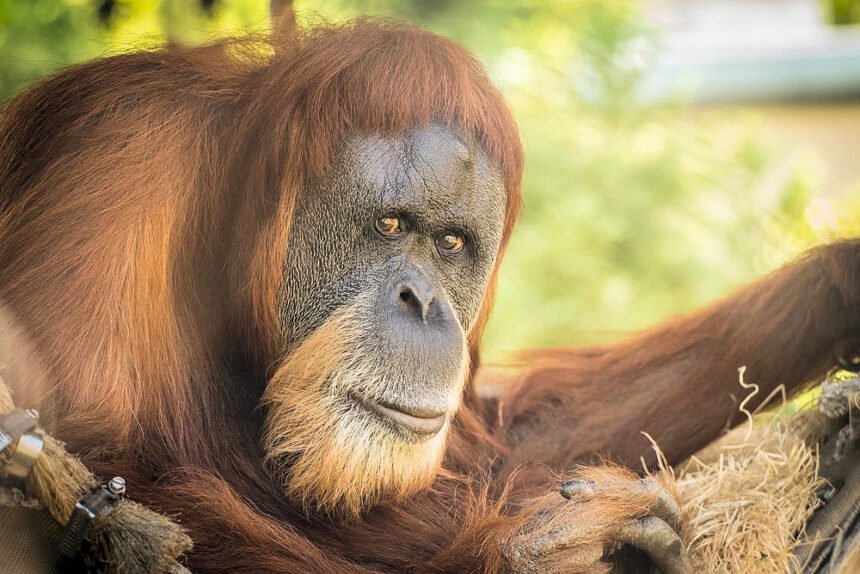Oregon Zoo mourns passing of Inji, world’s oldest orangutan

At 61, he had been noticeably slowing down in recent years
PORTLAND, Ore. (KTVZ) -- The Oregon Zoo said a sad goodbye Saturday to its oldest resident, Sumatran orangutan Inji, who at 61 years old was thought to be the oldest orangutan in the world.
“We knew she couldn’t live forever, but this really hurts, and I know many visitors are grieving along with us,” said Bob Lee, who oversees the zoo’s animal areas. “Inji’s ability to connect with people was incredible. She inspired generations.”
Lee recalled the way Inji would amble over to the windows of her habitat, curious to see what was inside people’s handbags, purses and backpacks.
“Some volunteers, staff and guests would make a point to carry wind-up toys or brightly colored items in their bags just to show Inji,” Lee said. “She remained active and inquisitive all through her golden years. She seemed to study humans and enjoy watching them, especially children.”
In the wild, orangutans seldom live past the age of 40, and Inji, at 61, had been noticeably slowing down over the past several years. In 2012, she was included in an Oregonian article about elderly Oregon Zoo inhabitants that highlighted ways keepers and veterinary staff care for animals approaching the end of life. But for most of the following decade, she carried on with no major health concerns. A 2015 TakePart article about her noted, “what she teaches us about staying fit could help save her wild brethren.”
Over the past few weeks, Lee said, Inji’s health deteriorated. She was moving stiffly, rarely left her nest box, and was no longer interested in even her favorite foods. On Saturday, when it was apparent that pain medications were not helping, veterinary and care staff made the difficult decision to humanely euthanize her.
Inji’s actual date of birth is unknown. She was born in the wild around 1960, came to the United States through the wild animal trade (legal at the time) and was brought to the zoo by her owner in 1961. She was estimated to be around a year old when she arrived, on Jan. 30, 1961.
“We’re thankful that we were able to give Inji a good home, but it’s heartbreaking to think about the circumstances that brought her here,” said Asaba Mukobi, the zoo’s senior primate keeper. “Even though the wild animal trade is illegal now, it still exists. It is considered a major threat to orangutans’ survival, along with human encroachment and habitat loss from palm oil plantations. Orangutans are at the brink of extinction — especially in Sumatra, where Inji came from.”
All three orangutan species are considered critically endangered, with fewer than 800 Tapanuli, 15,000 Sumatran and 55,000 Bornean orangutans believed to remain.
The name “orangutan” comes from the Malay “orang,” meaning man, and “hutan,” meaning wilderness or jungle. According to Mukobi, many people are struck by the orangutans’ close resemblance to humans.
“Building on that connection, we’re trying to create awareness about what’s happening to orangutans in their native lands and let people know how they can help,” Mukobi said.
Zoo staff plan to honor Inji at the opening of Primate Forest, the Oregon Zoo’s new habitat for chimpanzees and orangutans. The habitat — one of eight major projects made possible by a community-supported zoo bond measure passed in 2008 — is nearly complete and scheduled to open this spring.